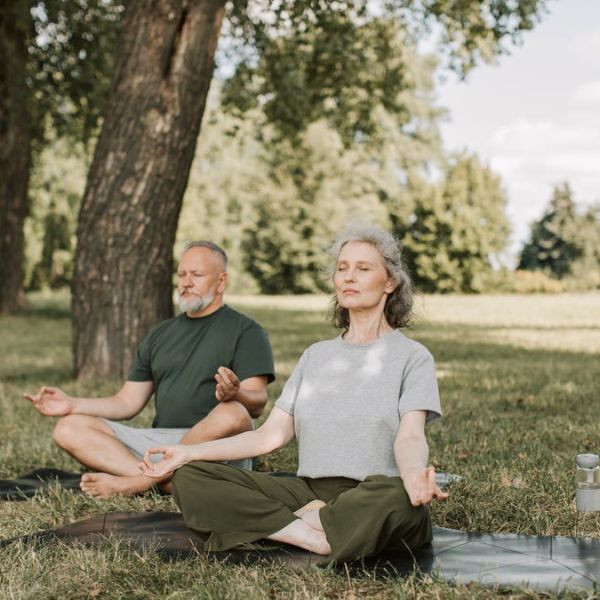

· By AMISHA SHUKLA
How to be Mentally Fit?

As with physical fitness, mental fitness has far-reaching advantages. But what does it indicate to exercise your mind? Can the brain do crunches?
We understand the significance of physical fitness. And we have numerous options to create it: with a trainer at the gym, at a HIIT class, or walking and running outside. We each have our set of exercises to support the health and well-being of our bodies.
The result? You grow muscles that help you perform better in your everyday life. You are powerful, leaner, have more power or endurance, and are less prone to accidents and injury.
Operating at a higher state of health, you are "fit." Fit to respond to the demands of every day (carrying shopping bags, running after pets and children) and more able to enjoy life. Maintaining optimal health can bring more positive emotions, less stress, and a sense of achievement.
The good news is, that you can enjoy similar benefits from developing your mental fitness, too!
How does mental fitness help?
Mental fitness can be defined as having and maintaining a state of well-being and cultivating awareness of how we behave, think and feel.
Just as physical fitness provides us with an increased ability to react to life in all its richness, mental fitness helps in the same way. It provides us more space to choose how to respond to a situation, whether that situation is aforethought, an external stimulus, or a feeling. As a solution, we are less likely to sustain (or cause) emotional and relational injury.
Consider what happens if you find yourself in an argument with your spouse. Your spouse says something in anger that is hurtful. When we're in a reactionary mode, we fire back straight out of the core of that hurt. Your arrow lands, and your spouse responds in kind. And so on, leaving you both feeling out of control and strained.
When you are more mentally fit, you acknowledge that you have a selection when that first angry statement comes your way. Mental fitness gives you the power to pause and respond in the way you would like, at the moment, rather than having to reset or mend fences later. In some methods, it's like accessing the understanding of hindsight in the present moment.
How does fitness help mental health?
When we're mentally fit, the manner in which we interact with the world is distinct. It isn't just one interaction with a spouse. It is a cumulative impact on our emotional health. Imagine being less reactive in the hundreds of interactions we have every week. As the example above shows, we choose how to be and respond rather than ping-ponging from one reaction to another. Over time, that adds to a lot less anxiety and negative emotion.
In the exact way that our physical fitness also impacts our mental health, our mental fitness eventually affects our physical health and wellness.
How does mental fitness work?
Our brains carry thoughts along neural pathways. These pathways are like ruts that have been developed and strengthened over time. If you always take the exact route to work, you may detect that you can get there on "autopilot." When we constantly repeat a certain thought pattern, that neural pathway is backed, and the thinking becomes automatic.
While a daily routine can be good, we ought to be conscious of our routines and what pathways we're inadvertently reinforcing when it comes to our thought patterns.
The issue with automatic thinking is when it forces us to react in unhelpful ways in the present situation. Our reactions are established on well-worn pathways to past emotions or triggers.
As you create mental fitness, you have the attention, mental strength, and skill to determine options and select another route. What would I like to have to happen here? Where would I like to go? Too often, we act, speak, and think automatically or unconsciously.
Automatic thinking comes from our survival brain, the limbic system. It is always scanning the environment for threats and has been throughout evolution. We inherited the limbic system from chimps, and it can protect us. But it can give height to beliefs and actions that harm us in the modern world, too.
It is the human part of the brain that we can create and re-program. With the same deliberateness that we support certain muscles or fine-tune a movement, we can make neural pathways that better serve and help our lives. This is the core of what is meant by mental fitness training.
10 Ways On How to be Mentally Fit
Your mind is a muscle — let's flex it.
We don't get robust arms by doing bicep curls once. Our mental strength is identical. Improving our mental fitness requires time, practice, and consistency.
Neuroscience is discovering new, effective ways to develop our brains for enhanced mental strength and performance. What we are learning about neuroplasticity means that, at any age, through training, we can change our brains to become even more mentally strong, healthy, and fit.
Here are 10 ways to start training your mind today.
1 | Remember that not every opinion is right or useful.
We don't have to tolerate every thought we have. Just because we think it doesn't mean it's true. Our ideas, past experiences, and feelings that we bring to any case are like a hidden filter that influences how we interpret and experience the world. The trouble is that we often don't realize that we have a filter. Imagine walking through the world with glasses with a gloomy lens and just thinking that's how the world looks. It isn't easy, in that situation, to believe that a different way of seeing is possible. But it is!
We can deliberately drop our filters and open up to the world with fresh eyes. Perhaps you remember when you were newly in love, and it seemed the world shimmered with goodness? This is a lovely experience and is worth enjoying. When our lenses are less rosy, we tend to be ignorant of them. We may unconsciously be glancing at the world through a filter of negativity, fear, or unworthiness, which directs to considerable suffering. Practice stepping back from your thoughts and questioning their truth.
2 | Meditate. Train your mind to focus.
Meditation is the way into a subjective mental muscle-building playground. It reinforces our capacity to watch (hopefully with a sense of humor) all of the wacky, unhelpful, and disturbing things that our minds do. It is the foremost step in interrupting and shifting the mental habits that cause us trouble. Meditation also allows us to focus and tune out distractions.
3 | Notice when you're contemplating and choose presence.
Have you noticed the low spiral of thoughts when you're worried, worried, disappointed, angry, or nervous? It's easy to get lost in a flurry of what-ifs, criticism (of self and others) and overthinking. A part of us accepts that if we dwell on the problem and expend our energy exploring the situation, we'll somehow figure it all out and escape the discomfort we're feeling. Instead, we spin into a sea of repetitive thoughts, negative feelings, regrets, and fears and become more anxious and exhausted. We become so preoccupied with our thoughts that it's impossible to be present, making it hard to truly engage and enjoy whatever we're doing. In our sincere (but misguided) try to find some relief, this mental pattern guides us to further suffering.
Rather than remaining with your thoughts, invite yourself back to the present moment. The easiest way to do this is via the senses. What can you see, hear, feel, smell, and taste? Bring your alert to what's here and now.
4 | Relax your mind. Console to the music or read a sleep story.
Your brain requires time to reset and refresh, no other than bringing a break between sprints or a set of deadlifts. Rest has been stigmatized for so long that many of us feel lazy when we relax and fear that rest will harm our productivity. The reality is that adequate rest improves our focus, creativity, and power to be more effective and efficient. While resting might look like cozying up to read a book, it could also be crafting, climbing, or playing a board game, essentially, anything that gives us salvation from our day-to-day stressors.
5 | Tune out the noise.
We are in the digital age of distraction. There is no lack of notifications, messages, social media, and streaming platforms competing for our attention. It can be effortless to be drawn away from what's important if left unchecked. Some digital clean-up, like undervaluing the push notifications on the phone, is an essential first step. In addition, what we need to adjust out the noise is discipline. Not a discipline that rules with punishment, but a more inspiring form of discipline devoted to what's essential.
6 | Prioritize sleep.
The time we spend awake is special, but so is the time we sleep. In complement to leisure gifts, our bodies and brains have the chance to repair and recuperate while we sleep. To show up in the world as our best selves, we must give ourselves this time to recharge. More ZZZs enhances our memory, mood, creativity, and problem-solving skills.
7 | Create routine and practice.
The brain is competent at forming connections, and we can utilize this to benefit our mental health and fitness when presenting new practices. Here's what we signify. If you decide you want to ponder for 30 days, a way you can improve the likelihood of working it for 30 days in a row is to form a connection between a current habit and this new one. You would do this by adding a private routine you already have in place.
8 | Let go.
Trying to direct our lives and the people in them is a one-way ticket to stress and fatigue. Notice when you're fixated on something that you don't have authority over or taking on more burden than is yours, or when perfectionism keeps you stuck. Accept what you can't regulate. Let your best actions be enough for now. And, be considerate to the part of you who labors to let go.
9 | Listen to the wise voice within.
The wisdom within, our instincts or intuition, has various ways of showing itself. Occasionally it's a quiet voice asking to be heard, a feeling in the gut, or a deep knowing. Too often, we neglect this wise messenger because our truth can be inappropriate or incongruent with the advice and longings of our family or society. When we do hear and test out acting in alignment with this knowledge, we start to build a connection of trust with ourselves. This is a strong act of self-love that praises who we are and what we require.
10 | Take a deep breath.
The breath is strong support that you can access anywhere — a first date, a test, a big presentation, a difficult conversation, or a traffic jam. Diverting down and deepening the breath have been shown to help soothe the mind. It can also decrease blood pressure, enhance memory, and settle emotions.
The takeaway
Mental fitness is essential to preserving your brain and body healthy, especially as you age. There are many kinds of mental dexterity exercises, and you don't require to go to the gym to do them. They include active ones, such as learning a new song or playing a game, and relaxing ones, such as leisure and visualization exercises. Schedule a mental fitness break next to your workout schedule in your calendar. Your mind and your health deserve it.














